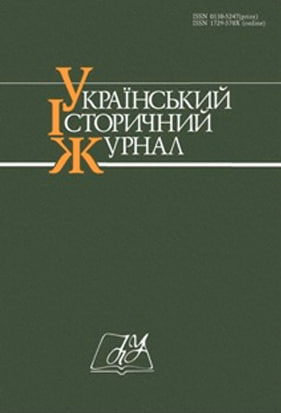Laughing at VChK—OGPU—NKVD: The Soviet State Security Agencies in the Anecdotes (1920s—1930s)
DOI:
https://doi.org/10.15407/uhj2023.05.151%20Keywords:
political anecdotes, repressions, terror, VChK—OGPU—NKVDAbstract
The article aims to characterize the political anecdotes about the Soviet state security agencies, which went viral and their role in the Soviet socio-cultural environment in the 1920s and 1930s during intensifying repressions and terror mainly.
This research is based on three classical theories of humor: the incongruity theory (jokes have a double meaning or there are social roles displacement), the superiority theory (the response of weak people to their suppressors), and the relief theory (decreasing social tension).
The scientific novelty lies in the identification, systematization, and interpretation of Soviet political anecdotes of the 1920s and 1930s dedicated to VChK—OGPU—NKVD.
Conclusions. In the article, the Soviet anecdotes are ranked as a part of the culture of popular laughter. There are no specific Ukrainian features in the identified anecdotes as these were themes, genres, etc., adapted for the Ukrainian consumer. The political humor of the ordinary people was the reflection of the socio-political events that took place in the Soviet Union in the 1920s and 1930s. In the USSR, political anecdotes were the focus of close attention by the authorities, as they were qualified as a manifestation of counter-revolutionary activity and could lead to persecution according to the Criminal Code. On the one hand, the internal intelligence agencies of the USSR recorded political anecdotes and, on the other hand, the VChK—OGPU—NKVD became the subject of irony and jokes. While in the 1920s, anecdotes focused on the struggle of OGPU against speculation, NEPmen, and cooperators, in the 1930s, the themes changed. The activities of the NKVD, which were associated with night searches and arrests, torture during interrogation, political repression, and trials against “enemies of the people”, gave rise to the political jokes in the period known as the Great Terror. The humor of ordinary people performed several functions in the time of terror. Laughter helped to overcome the fear of power and aggression. Political anecdotes about the Chekists were an example of routine resistance. Besides, that kind of humor also was supposed to entertain people. The political anecdotes were the specific marker of the political moods of the population in the Soviet Union, but they cannot be considered as a form of political struggle.


